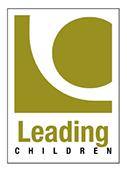It has become a trend in some schools for children to have the means to make their own play dough, which in theory is a lovely idea. Children have a recipe to follow, their practitioner helps them to make dough a few times and then they can go solo. Measures are usually in numbers of cups or teaspoons and all ingredients are to hand to support children’s independence.
In reality, in most classrooms, we can only imagine the devastating fallout of such opportunity! Why would you put yourself through this every day?!
Well, the thing is, you don’t need to. This messy activity, along with other forms of baking, malleable play, powder painting and a whole host of other activities can be better managed by training and through master classes.
Teaching the skills
All activities, whether in continuous or enhanced provision need to be carefully introduced to children, sometimes more than once. Take a photograph of the activity, or move it to the carpet so that you can show children what it is you are asking of them. Demonstrate, set up rules, teach the skills, set expectations and talk through the process. If you want children to clean and clear up after themselves independently, then teach this separately. Do a 15-minute master class every day, which includes cleaning skills: how to wash and wring out a cloth, how to use the dustpan and brush, how to sweep, how to mop, when to use a sponge to soak up and when to choose a cloth to wipe. We cannot assume a child knows how to do any of this!

Let them tidy up!
Please don’t tidy and clean up after children. They need to understand that the consequence of using something or making a mess is that they need to clean up. To clean up for them leads to what is known as ‘learned helplessness’. Teach them ‘mastery orientation’ instead and activities such as making dough will become more feasible.
Sometimes we need to give children an extra incentive, by giving them a license – something to say that they have done the training and they can make the dough, clean up the area properly and leave everything ready for the next child. Have a go and see the difference you can make to the quality of learning by training first!

